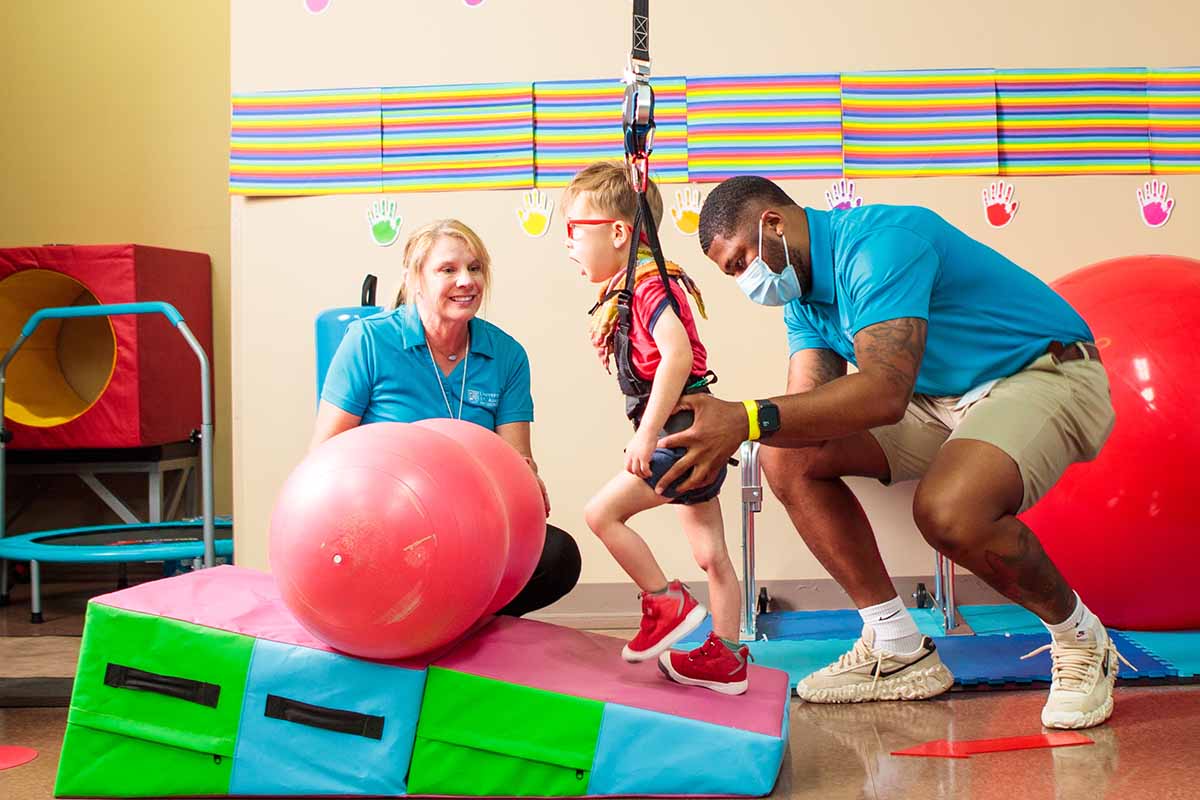
Memory plays an essential role in everyday life, enabling us to learn about the world around us and adapt accordingly. We use various memory techniques in every moment, whether for remembering our clients’ first names, studying for a nursing school exam or countless other aspects of our work and life.
Information we take in goes through the three stages of memory: encoding, storage and retrieval.1 The encoding process converts information into a construct stored in the brain. Next, the information is stored in our recall memory system as either long-term or short-term memory. Finally, information is available to be retrieved from storage.
There are several ways to facilitate this process, protect against memory decline and enhance our ability to retain information. Below, we outline memory strategies for boosting brain health, as well as specific memory enhancement techniques for memorizing and recalling information.
How to Improve Memory


The best way to protect and improve long-term memory is by making good lifestyle choices: exercising regularly, limiting stress, eating healthfully and getting enough sleep.2 These healthy habits not only protect brain function but specifically enhance recall memory performance as we age. You can also keep the mind agile by learning a foreign language or playing brain training games to improve short-term memory.2
- Exercise regularly: Being physically active is one of the best strategies to improve and protect memory. Regular aerobic exercise appears to boost the size of the hippocampus, the area of the brain involved in verbal memory and learning.3 Regular exercise can also help you reduce stress and sleep better, which are related to memory.2
- Limit stress: Meditation and mindfulness are great memory techniques to reduce stress and improve sleep.4
- Be conscious of what you consume: Not surprisingly, what you put into your body can also affect your memory.2 Consuming a balanced diet that includes healthy fats and natural sugar (glucose)—and limits saturated fat, refined sugar and alcohol—may be best for promoting and improving long-term memory function.
- Sleep: Sleep is critical, as it plays a role in consolidating memories. Also, a lack of sleep can impair an individual’s ability to concentrate.5 You can improve sleep by exercising regularly, engaging in mindfulness/meditation, limiting alcohol and avoiding caffeine in the afternoon and evening.
8 Memory Techniques for Retaining Information
When studying for an exam, preparing a presentation or getting ready to deliver a speech, you will likely need to memorize key details.
Before you prepare, try several memory strategies to set yourself up for success. Try to avoid distractions while you’re studying, plan ahead so you don’t need to cram and take study breaks.
Below are 8 science-backed memory techniques for retaining information and improving recall memory performance.
1. Organize Information
Start by outlining the information you will need to recall. Create a detailed and organized outline of the information to highlight and focus on important concepts.
A useful organization strategy is the chunking method, which breaks down large amounts of information into smaller, logical units that are easy to understand.6 For example, when learning a foreign language, list vocabulary words in functional groups such as household items, animals and occupations. Chunking is one of the most valuable tools among memory recall techniques.
2. Make Associations
Creating associations by drawing on existing knowledge is another one of our memory techniques. You can form mental images and connect with sounds, smells and tastes to help encode memories.


The Baker/baker paradox tells us that if two individuals are to remember that someone’s last name is Baker, they are much more likely to do so if they picture the person as a professional baker (i.e., Mr. Baker wearing a chef’s hat).7 This is why developing a story is a powerful tool to improve long-term memory. For example, if you want to remember that a client’s name is Sandy, you might picture her walking along a beach.
3. Use Visual Cues
Using visual tools such as concept maps, graphs, illustrations and photos can benefit learning. Graphs and charts also simplify information, making it easier to comprehend and recall.
This recall memory method can benefit visual learners, or individuals who better conceptualize information they can see.8 It’s also a valuable technique for presenters who can use visuals in their slide deck as retrieval cues.
4. Create Mnemonics
Using mnemonic devices, such as acronyms, acrostics and rhymes, is a good way for improving long-term memory. For example, do you remember when Columbus landed in America? You likely do if you ever learned the rhyme, “In 1492, Columbus sailed the ocean blue.” If you need to remember a series of numbers for work, consider a creative rhyme.
For more visual learners, another mnemonic device you can use is building a memory palace. A memory palace is an imaginary place (such as a house or a familiar venue) where you store mnemonic images.9 The idea behind memory techniques like this is you take a journey in your mind to recall the information.
5. Write It Down


It turns out that some things are better the old-fashioned way. Researchers have found that writing down information by hand is more effective than typing for learning concepts.10 As it takes longer to write by hand, you are naturally forced to be more selective with what you write and focus only on the key information. As far as memory strategies go, less is more when it comes to notetaking.
6. Say It Out Loud
When you need to remember new information, one of the more helpful approaches to improving long-term memory is to read it aloud. One study determined that the dual action of speaking and hearing ourselves talk helps get words and phrases into long-term memory.11 Memory benefits from active involvement.


7. Engage in Active Recall
Testing yourself forces you to activate your recall memory processes. Flashcards are a great way to self-test. Studies show that retrieval practice can enhance recollection rather than simply restudying materials.12
8. Rehearse
Practice does make perfect when it comes to memory strategies. Rehearse information repetitively, either by writing it down or reading it aloud.
Studies suggest that spaced repetition—spacing out learning over a period of time—is a more effective way to memorize information than trying to cram a lot of information into your brain over a short period of time.13
All of these memory techniques are supported by science, and memory champions can attest to their efficacy. Even if you aren’t a memory athlete, these memorization techniques can help you at school or at work. Check out our posts on effective study techniques and time management for further information.
Sources:
- McDermott, K. and Roediger III, H., “Memory (Encoding, Storage, Retrieval),” Noba, 2025, https://nobaproject.com/modules/memory-encoding-storage-retrieval.
- Mayo Clinic Staff, “Memory loss: 7 tips to improve your memory,” Mayo Clinic, March 7, 2024, https://www.mayoclinic.org/healthy-lifestyle/healthy-aging/in-depth/memory-loss/art-20046518.
- “Aerobic exercise cognitive fitness,” April 19, 2024, Harvard Health Publishing, https://www.health.harvard.edu/healthbeat/aerobic-exercise-cognitive-fitness.
- “How Meditation Benefits Your Mind and Body,” Healthline, August 15, 2024, https://www.healthline.com/nutrition/12-benefits-of-meditation.
- “Brain Basics: Understanding Sleep,” National Institute of Neurological Disorders and Stroke, February 25, 2025, https://www.ninds.nih.gov/health-information/public-education/brain-basics/brain-basics-understanding-sleep.
- Parker, S. “What Is Chunking and How Can It Improve Memory? (Plus Tips),” Indeed, March 3, 2025, https://www.indeed.com/career-advice/interviewing/what-is-chunking-technique.
- “7 Proven Techniques to Enhance Your Memory Retention,” techclass, March 7, 2024, https://www.techclass.com/resources/lifelong-learning/7-proven-techniques-to-enhance-your-memory-retention.
- Kerketta, S., “Unlocking The Magic: The Transformative Power Of Visuals In The Learning Process,” eLearning Industry, July 29, 2023, https://elearningindustry.com/unlocking-the-magic-the-transformative-power-of-visuals-in-the-learning-process.
- Coursera Staff, “Improve Your Memory by Building a Memory Palace,” Coursera, February 4, 2025, https://www.coursera.org/articles/memory-palace.
- “Why writing by hand beats typing for thinking and learning,” NPR, May 11, 2024, https://www.npr.org/sections/health-shots/2024/05/11/1250529661/handwriting-cursive-typing-schools-learning-brain.
- BetterHelp Editorial Team, “Long Term Memory Boosters: Useful Memory Techniques And Tips,” BetterHelp, February 24, 2025, https://www.betterhelp.com/advice/memory/useful-memory-techniques-for-school-work-and-everyday-life/.
- Grüdtner Buratto, L., Klier, C., “The benefit of retrieval practice on cued recall under stress depends on item difficulty,” Department of Basic Psychological Processes, Institute of Psychology, University of Brasília, Brasília, Brazil, January 12, 2023, https://www.sciencedirect.com/science/article/pii/S0304394023000204.
- “Spaced Practice,” UC San Diego Department of Psychology, 2025, https://psychology.ucsd.edu/undergraduate-program/undergraduate-resources/academic-writing-resources/effective-studying/spaced-practice.html.








